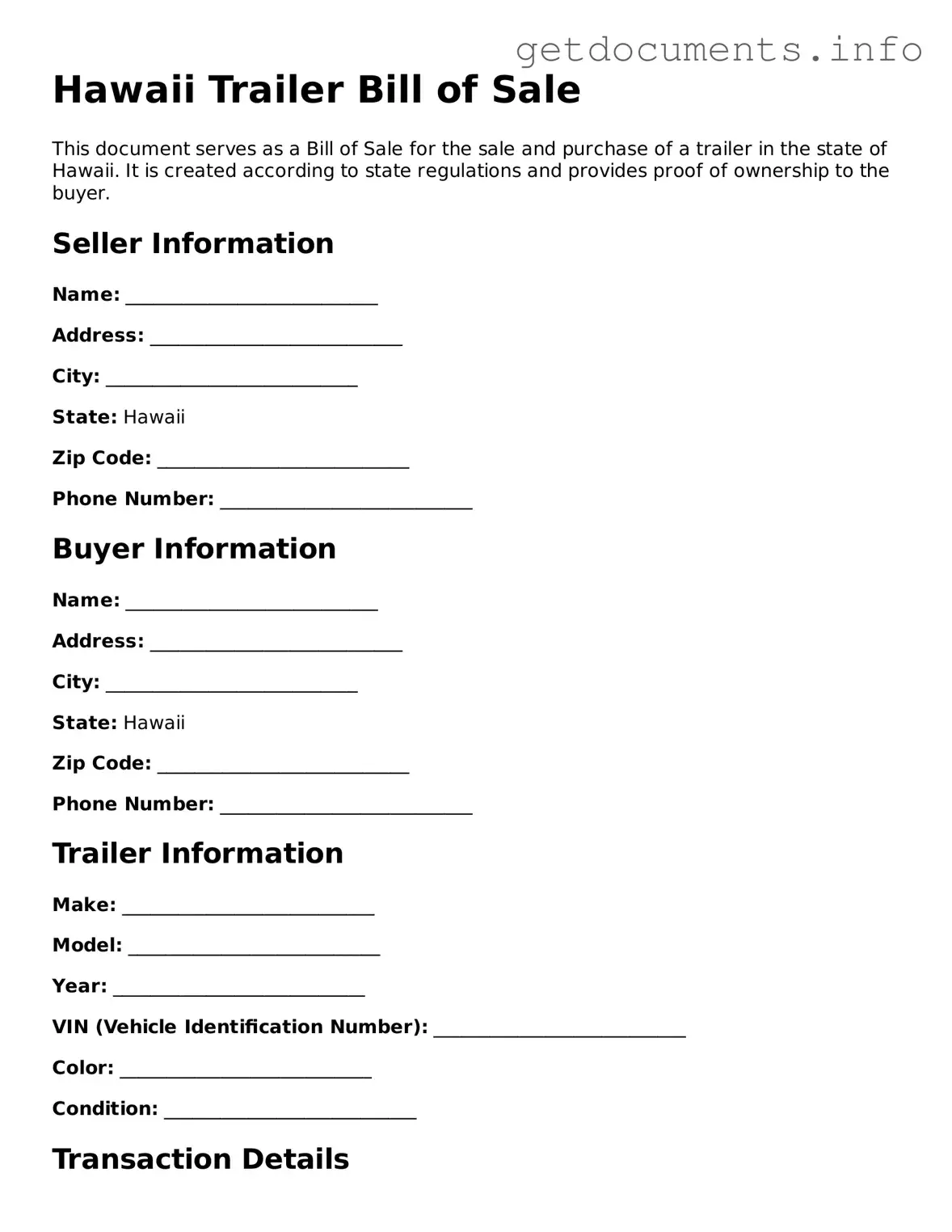Free Trailer Bill of Sale Template for Hawaii
The Hawaii Trailer Bill of Sale form is a legal document used to transfer ownership of a trailer from one party to another. This form provides essential details about the trailer, including its identification and the terms of the sale. Completing this form is crucial for both the buyer and seller to ensure a smooth transaction and proper registration.
To fill out the form, click the button below.
Access Trailer Bill of Sale Editor

Free Trailer Bill of Sale Template for Hawaii
Access Trailer Bill of Sale Editor
Got places to be? Complete the form fast
Fill out Trailer Bill of Sale online and avoid printing or scanning.
Access Trailer Bill of Sale Editor
or
⇩ PDF File
